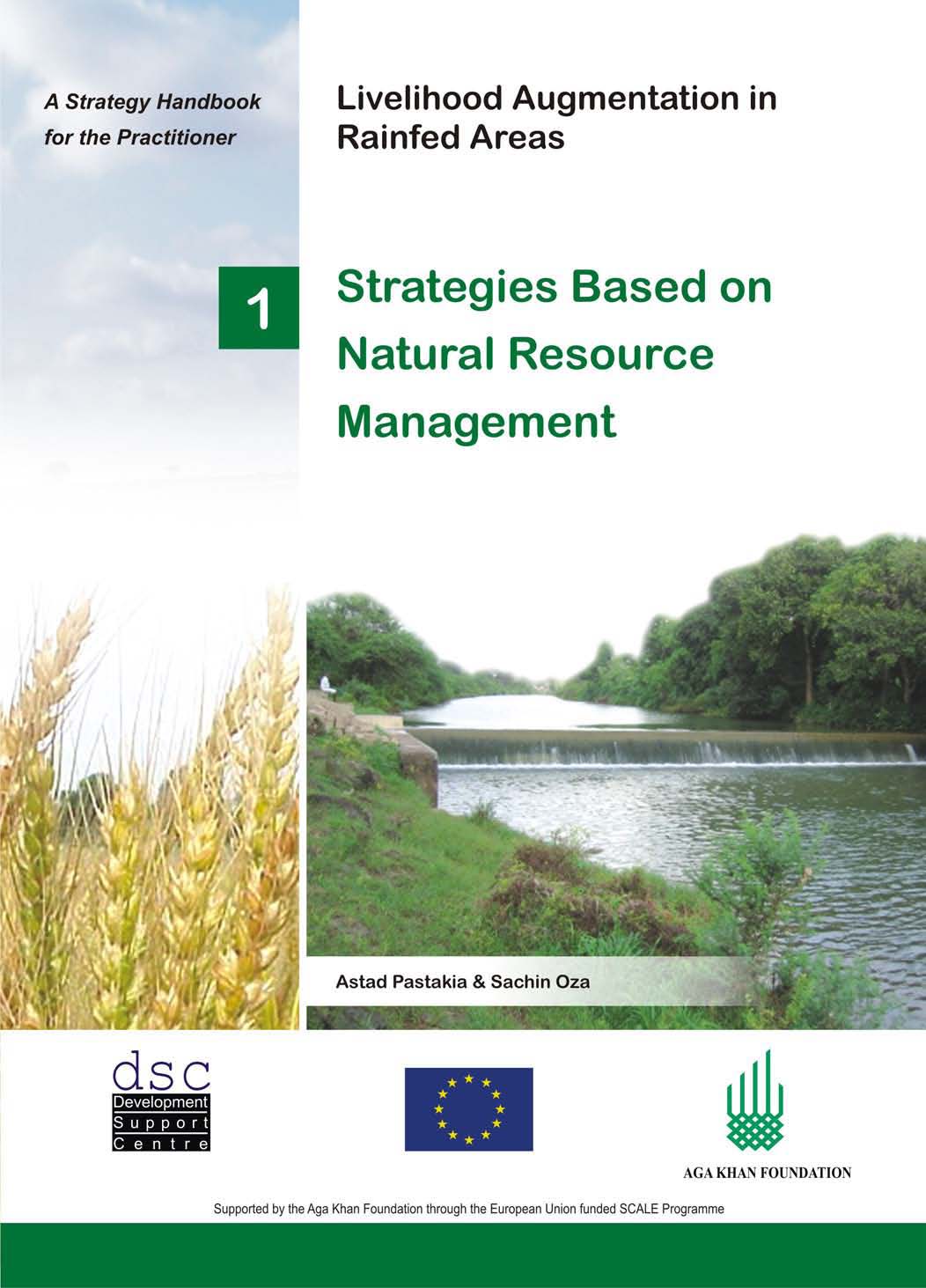Rainfed Agriculture
Rainfed agriculture: Unlocking the potential – A book by CAB International
Posted on 24 Jun, 2011 08:39 PMThis is the seventh book by CAB International in the series on Comprehensive Assessment of Water Management.
"Upscaling innovative technologies" - Invites opinions and insights by 26 June 2011 as part of the 12th Five Year Plan sub group consultations, on increasing system of rice Intensification (SRI)
Posted on 22 Jun, 2011 04:39 PMThe purpose of the survey is to reflect on the experiences of professionals, researchers, policy managers and farmers on dissemination and sustainability of SRI practices and principles. This survey seeks to build on the experience of SRI professionals to look at the future role of SRI on household food security and poverty reduction, the institutional framework to expand SRI. In addition, the extent to which soil health, water stress, adoption/dis-adoption and capacity building issues have been accommodated within SRI policy will also be explored.
Livelihood augmentation in rainfed areas – A strategy handbook for practitioners by Development Support Centre
Posted on 19 Jun, 2011 10:33 AM It is a compilation of ongoing, successful strategies piloted and upscaled by a range of development agencies in different parts of the country. The handbook is presented in four volumes under a common framework and focus on initiatives related to: participatory natural resource management; rural entrepreneurship development; use of information communication technology and institution development.
It is a compilation of ongoing, successful strategies piloted and upscaled by a range of development agencies in different parts of the country. The handbook is presented in four volumes under a common framework and focus on initiatives related to: participatory natural resource management; rural entrepreneurship development; use of information communication technology and institution development.
About 400 million rural poor reside in about 200 poorest districts of the country that constitute rainfed areas. Scientific research has revealed a vast untapped potential in rainfed agriculture where crop yields are lower than their potential by two to five fold. A large number of innovative projects and ideas have been tried to address this issue, although documentation has been uneven and fragmented. Drawing upon such experiences, the handbook points towards new vistas and untapped opportunities in meeting the challenge of enhancing food security with limited water resources and improving the carrying capacities of rainfed areas to match the rapidly increasing populations in these regions and elsewhere.
Presentations from the two-day workshop on success stories under watershed programmes by DoLR at New Delhi (2011)
Posted on 18 Jun, 2011 06:50 PMThe workshop was structured in two sections. Research papers were presented from research institutes such as Central Research Institute for Dryland Agriculture (CRIDA), Central Soil & Water Conservation Research and Training Institute (CSWRTI), Deutsche Gesellschaft für Internationale Zusammenarbeit (GIZ) GmbH, International Crops Research Institute for the Semi-Arid Tropics (ICRISAT), National Research Centre for Agroforestry (NRCAF), National Institute for Rural Development (NIRD) and National Bank for Agriculture and Rural Development (NABARD). This was followed by presentation of success stories by various States.
Changing with the seasons: How Himalayan communities cope with climate change - A report by Peoples’ Science Institute
Posted on 14 Jun, 2011 10:51 PMMountain areas and communities are susceptible to climate change. This work also yielded evidence of the coping strategies developed by the communities to deal with an unprecedented and only partially understood threat. This paper describes these strategies and attempts to assess the vulnerability of the communities in each valley.
Productivity enhancement through up-scaling SRI experiences in Chattisgarh - Brief report of a one-day workshop organised by PRADAN on May 26, 2011
Posted on 14 Jun, 2011 06:11 PMIn May 2008, PRADAN initiated the SRI method of paddy cultivation in selected areas of Chhattisgarh through its partner organisations with financial support from Sir Dorabji Tata Trust (SDTT). It supported 11 NGOs who together could reach 4600 framers in 9 districts of Chhattisgarh in last Kharif.
National Rainfed Area Authority invites applications for Young Professionals and Consultants - Apply by 21st June 2011
Posted on 31 May, 2011 04:33 PMNational Rainfed Area Authority (NRAA) requires services of outside experts /retired government servants as non-official young professionals/consultants in the following field:
- Agriculture/horticulture
- Animal husbandry and fisheries
Guidelines for rainfed area development programme - Document prepared by Department of Agriculture and Cooperation (2011)
Posted on 27 May, 2011 07:47 AMRainfed areas account for nearly 57 per cent of the agricultural land in India. These areas assume special significance in terms of ecology, agricultural productivity and livelihoods for millions. With proper management, rainfed areas have the potential of contributing a larger share to food grain production.
Guidelines for integrated development of 60,000 pulses villages in rainfed areas - Document prepared by Department of Agriculture and Cooperation (2011)
Posted on 27 May, 2011 07:36 AMThe budget allocates Rs 300 crores under the Rashtriya Krishi Vikas Yojana (RKVY) for this scheme. This project will supplement the ongoing work on pulses development under the National Food Security Mission. There is also an emphasis on building institutions that would provide market linkage to the grower of pulses. The states of M.P, U.P, Karnataka, Andhra Pradesh, Gujarat, Chattisgarh, Bihar, Maharashtra, Orissa, Rajasthan, and Tamilnadu were chosen for this programme. These states together constitute nearly 96% of area where pulses are grown.
Khadkipada, Maharashtra - A tale of development, an account of transformation - A film by WOTR on the Water Channel
Posted on 26 May, 2011 01:42 PM




